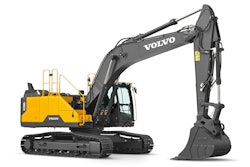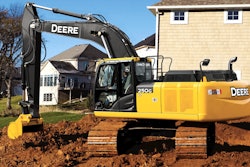The U.S. Environmental Protection Agency (EPA) announces that 21 small businesses in 15 states are receiving funding from the EPA to develop and commercialize innovative, sustainable technologies to address current environmental issues. The agency’s Small Business Innovation Research (SBIR) program is providing $2 million in funds to advance these innovative products and research.
“A strong economy and a healthy environment go hand-in-hand. With this funding we are providing opportunities for small companies to ultimately take their ideas and technology from the laboratory into the market place,” says EPA Administrator Gina McCarthy. “Their contributions strengthen the economy while fostering public health and environmental protection.”
Each year, EPA provides a solicitation and funding opportunity for small businesses in a competitive two phase process. In Phase I, small businesses can receive up to $100,000 for ”proof of concept” of their technology, and successful Phase I companies can apply to develop and commercialize their technology with Phase II funding totaling up to $300,000. The small businesses announced today are part of Phase I of the SBIR program.
Many of the SBIR recipient companies go on to leverage EPA’s funding to bring their designs to reality, expand business and create products that help protect human health and the environment. Companies that previously won SBIR contracts include Faraday Technology Inc., which developed a non-carcinogenic chrome plating process, and Cambrian Innovation, which created the EcoVolt system that treats wastewater and generates energy in the process.
Faraday Technology, currently planning to open a new alpha-scale facility in Clayton, OH, is using EPA’s funding to commercialize its technology as it partners with Boeing and attempts to replace millions of pounds of hexavalent chromium, a cancer causing chemical, that are in use in heavy-duty machinery. Cambrian Innovation’s EcoVolt system is being tested and used by several wineries and breweries including Lagunitas, enabling them to produce methane to power and heat their operations while treating wastewater on site.
Among the 21 companies awarded this year, three companies, SimpleWater, LLC, Lucid Design Group, Inc., and Environmental Fuel Research, LLC, previously received EPA’s People, Prosperity and the Planet (P3) award. The P3 program is an annual student design competition that affords undergraduate and graduate student teams the opportunity to research and design innovative, sustainable methods and products that solve complex environmental problems. This additional SBIR funding allows these former P3 student teams to continue developing and commercializing their sustainable technologies.
This year’s recipients of EPA’s Phase I SBIR contracts are:
Arizona
- Green Materials for Doubling the Life of Drinking Water Pipeline
California
- ECAR-Electrochemical Arsenic Remediation for Affordable Water Security in America
- Software Framework for Enabling Innovation in Behavior-based Energy Conservation in Commercial Buildings
- Environmental Sensing System Enhanced with Nested Concentrating Electrodes (ESSENCE) for Safe and Sustainable Water Resources
- Development of a Cost Effective Nutrient Removal Onsite Household Wastewater Treatment System for Environmentally Fragile Areas
Connecticut
- Low-Cost, Regenerable Air Filter for Efficient Gaseous Pollutants Removal
Massachusetts
- Enhanced Decontamination of Wetted Pipe Material
- High Flux Nanofiltration Membrane for Emerging Contaminant Control
- Micro-Channel Electrochemical Production of Dimethy Carbonate
Maryland
- Low-power, Small Form-Factor Benzene Sensor for Mobile Devices Based Exposure Monitoring
Minnesota
- Field Deployable PFCs Sensors for Contaminated Soil Screening
Missouri
- Next Generation of High Capacity Perchlorate Selective Resins for Drinking Groundwater Treatment
Montana
- Direct Conversion of Municipal and Agricultural Wastes to Biodiesel and Ethanol Utilizing a Unique Extremophilic Fungus
New Hampshire
- Ultracell-Advanced Cellulose Insulation
New Jersey
- Lithium-ion Batteries Based on Aqueous Electrolyte: A New Generation of Sustainable Energy Storage Devices
New Mexico
- Inexpensive High Performance Continuous Ammonia Monitor
Ohio
- MetaMateria Technologies LLC, Columbus, Ohio, for Phosphorus Removal and Recovery from Municipal Wastewater using Nano-Enhanced Media
- Development of Zinc Coatings on Steel by Cermaclad to Replace Galvanizing Picking Lines
Pennsylvania
- Biofuel Production from Grease Trap Waste
Virginia
- Innovative Filters Using Nanomaterial for Removal of Gaseous Pollutants and Particles for Contaminated Air Streams
Washington
- Process Development for Sandwich Core Structure PLA Thermoformed Objects
The solicitation for the next round of SBIR Phase I awards will open this month.



















